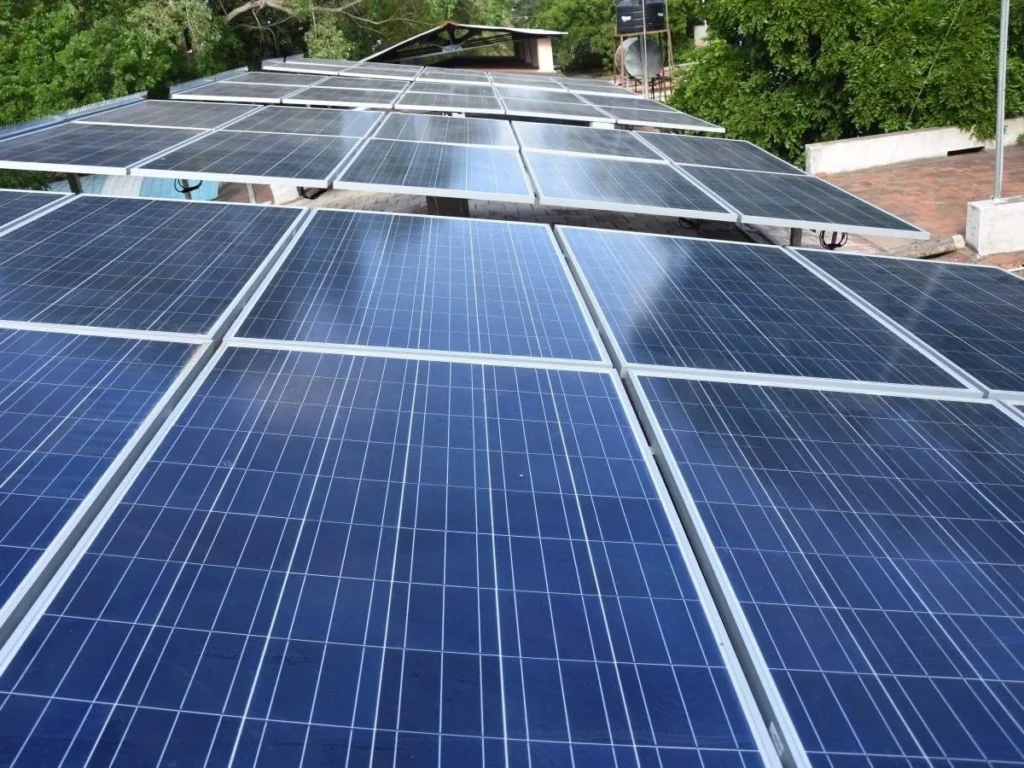India has reinstated the Approved List of Models and Manufacturers (ALMM) mandate to boost domestic manufacturing of solar PV modules.
About The Approved Models and Manufacturers of Solar Photovoltaic Modules (Requirement for Compulsory Registration) Order, 2019 (ALMM Order):
- Introduced by the Ministry of New and Renewable Energy (MNRE) in 2019.
- It requires manufacturers of solar modules to voluntarily submit to an inspection of their manufacturing facilities by the National Institute of Solar Energy.
- It comprises two lists: List-I for solar PV modules and List-II for solar PV cells (yet to be issued).
- The order mandates that companies must be listed as “approved” manufacturing facilities to certify that they are legitimate manufacturers of solar panels, rather than just importers or assemblers.
- It mandates that only models and manufacturers listed on the ALMM are permissible for use in government-sponsored or subsidized solar projects in India.
Benefits:
- The ALMM mandate, introduced in 2021 as a non-tariff barrier, promotes domestic manufacturing by endorsing indigenous models and manufacturers for government-led solar development projects.
- Reduce dependency on Chinese imports (controlling 80% of global supply) and promote local manufacturing for livelihood generation.
India’s progress in solar energy:
- India ranked fifth globally in solar power capacity with 62.80 GW installed by the end of 2022, up from 49.34 GW in 2021.
- By June 2023, the capacity had grown to around 70.10 GW.
- India currently has a solar module manufacturing capacity of approximately 50 GW, while its solar cell manufacturing capacity stands at around 6 GW.
- Over the past five years, imports of solar cells and modules into India amounted to approximately 11.17 billion USD.
- Notably, China has been the primary producer, accounting for 57% to 100% of Indian imports across various solar products, including modules, cells, wafers, and solar glass, since 2021.
- Reasons for import dependence include insufficient domestic manufacturing capacity, high costs of domestic solar PV panels, and limited production of wafers or polysilicon in India.
Initiatives facilitating domestic solar module manufacturing:
- Production Linked Incentive (PLI) Scheme for High Efficiency Solar PV Modules by The Ministry of New and Renewable Energy (MNRE).
- Domestic Content Requirement (DCR) Under certain schemes of the MNRE, such as CPSU Scheme Phase-II, PM-KUSUM Component B, and Grid-connected Rooftop Solar Programme Phase-II.
- Public Procurement (Preference to Make in India) Order,’ preference is given to ‘Make in India’ products in public procurement.
- Implementation of Basic Customs Duty (BCD) on the import of solar PV cells and modules.
Ref:Source
| UPSC IAS Preparation Resources | |
| Current Affairs Analysis | Topperspedia |
| GS Shots | Simply Explained |
| Daily Flash Cards | Daily Quiz |



